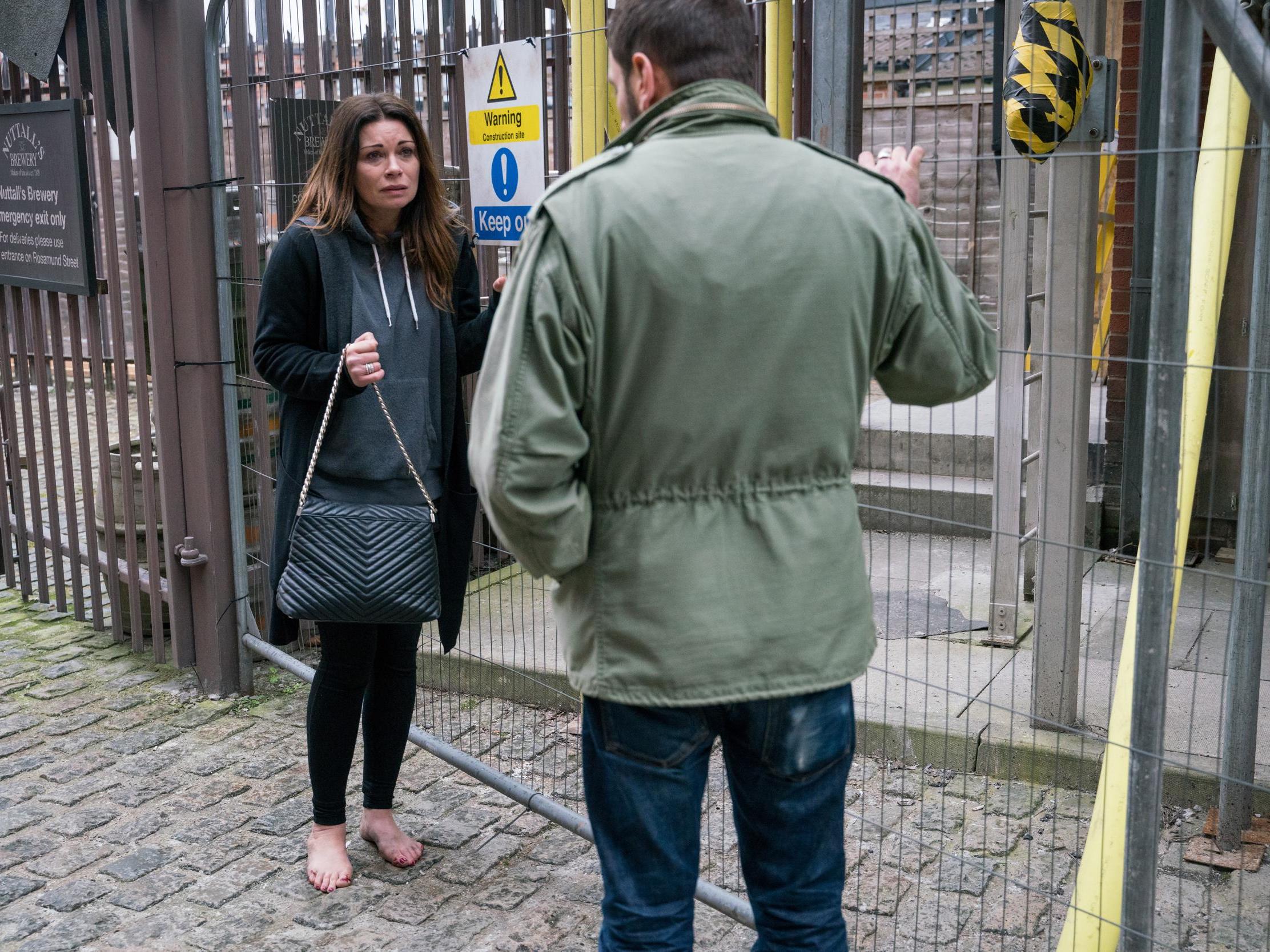I helped Coronation Street capture the reality of Carla Connor’s psychosis. I’ve seen firsthand that soaps can be radical trailblazers
Psychosis is still one of the most stigmatised mental health problems. While movies tend to link it with violence, soaps tell much more varied human stories


Your support helps us to tell the story
From reproductive rights to climate change to Big Tech, The Independent is on the ground when the story is developing. Whether it's investigating the financials of Elon Musk's pro-Trump PAC or producing our latest documentary, 'The A Word', which shines a light on the American women fighting for reproductive rights, we know how important it is to parse out the facts from the messaging.
At such a critical moment in US history, we need reporters on the ground. Your donation allows us to keep sending journalists to speak to both sides of the story.
The Independent is trusted by Americans across the entire political spectrum. And unlike many other quality news outlets, we choose not to lock Americans out of our reporting and analysis with paywalls. We believe quality journalism should be available to everyone, paid for by those who can afford it.
Your support makes all the difference.How many of us feel proud when we own up to our soap-viewing habits? It’s more likely something we tend to feel embarrassed about. Like admitting your favourite movie is Love, Actually or that your Spotify playlists are full of the Spice Girls.
Could that be because soap operas, rom-coms and pop music are sometimes not perceived to be especially challenging? Because we think they’re not pushing the envelope in the same way that Black Mirror, The Shape of Water or Pink Floyd did?
There’s a snobbery around what is challenging and what isn’t. And I think that snobbery is more to do with the platform used, rather than the challenge itself.
The Spice Girls brought feminism to a massive audience (yep – that statement’s bound to start an argument), and soaps inspire societal debate in millions of viewers on a daily basis. I’m not entirely sure what Love, Actually did for us, but I loved it all the same (perhaps that one should have remained a guilty secret).
What I’m saying is that you don’t need fancy language and an experimental format to really challenge people and make a difference.
For the past six months I’ve been working closely with the team at Coronation Street on a storyline about psychosis. It’s part of the freelance work I do with the mental health charity Mind and its media advisory service. The service exists to promote responsible portrayals of mental health problems and the team works closely with a wide range of soap, drama, documentary and filmmakers.
The story is currently hitting the screens, and Corrie fans are seeing the usually headstrong character Carla break down following a death on her factory premises.
So far, so soap-like. But the programme is exploring the issue of psychosis in this story, and not in the usual, stereotyped kind of way.
Psychosis is still one of the most stigmatised mental health problems that exists. Movies tend to pigeon-hole it in the horror genre and people get it confused with the idea of psychopathy, mistakenly linking psychosis with violence. This is why it’s so important to portray these symptoms accurately.
In the soaps, millions of viewers are able to follow a character’s ups and downs over many years. We’ve watched Carla get married, lose her brother (in fact, I think she kind of lost two), buy and sell the factory. Buy and sell the factory again...
We’ve been with her every step of the way, and she’s always been the same Carla – the assertive businesswoman with the sharpest tongue on the street and a softer side much-loved by Roy and Hayley (God rest her soul).
When we see someone so familiar experience something so unfamiliar (like psychosis) it shows it for what it is – and for what it isn’t.
Because we know the character, we don’t see psychosis as part of Carla’s personality. That’s where mental ill-health portrayals can be problematic: when you see the mental health problem first, and not the person.
Additionally, psychosis is all too often associated exclusively with the illness schizophrenia. But in reality, psychosis is a term for a collection of symptoms (including delusions such as paranoia, and hallucinations such as hearing voices) that can occur for many different reasons.
Severe cases of depression can cause psychosis, acute drug or alcohol intoxication can also result in psychosis and, as is the case in Carla’s story, stress, trauma and grief can also result in psychosis.
There have been some terrible portrayals of psychosis over the years. But we’ve also seen some good examples – and it’s another soap that immediately springs to mind here. Stacey Slater’s story in EastEnders was an example of where psychosis was portrayed well (in this instance, the symptoms were a result of postpartum psychosis).
When that story was underway, I delivered a workshop at a mental health service near Birmingham. Many of the people who lived in the accommodation there experienced severe or enduring mental health problems – and for many this included psychosis. When I asked them what they thought of the Stacey Slater storyline they were unanimous: they said they felt “relief”. They had always felt that their mental health problems were severely misunderstood – and this was a chance to put that right.
Given that most of the people I spoke to in that service had experienced upsetting instances of stigma (in fact, when the service was being built, there were reports of complaints from residents who didn’t want a mental health service in their community), I’d say that the soap played a huge role in challenging the stereotypes around psychosis. It showed viewers that psychosis doesn’t make a person who they are, but that it’s something that anyone can experience for a variety of reasons.
When I first spoke to Coronation Street about Carla’s story, I thought it was brilliant that we were going to see how psychosis can take a headstrong character and make her feel vulnerable – rather than turning a less assertive character into something violent (a stigmatised portrayal we have seen far too often in the media).
And while recovery from trauma or mental health problems is rarely a linear experience, we are so much more than our mental illnesses. Carla Connor has strutted across the cobbles in stiletto heels for over a decade, so it’s unlikely that this current vulnerability will overshadow her gregarious personality for years to come. But I guess us soap fans will have to wait and see what happens.
In the meantime, let’s be careful not to turn our noses up at the programmes making these challenging issues accessible and far-reaching. It’s so much more than a high-brow, jargon-filled conversation could ever hope to achieve.
Join our commenting forum
Join thought-provoking conversations, follow other Independent readers and see their replies
Comments